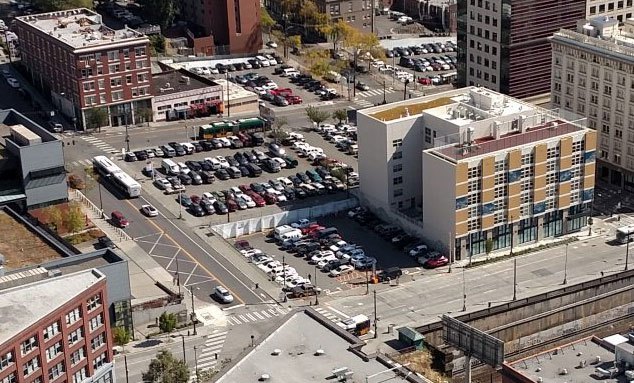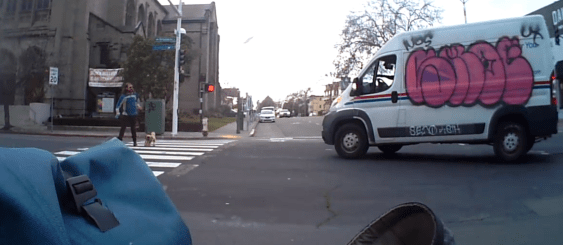Parking lots make cities less walkable, bikeable, and transit-friendly. They crowd out space for housing. They erode the tax base.
A few American cities have special taxes on surface parking lots that create an incentive for redevelopment, and Seattle is one of them. The trouble is, says Doug Trumm at The Urbanist, Seattle's parking lot tax should be higher. Here's why:
Seattle last raised the commercial parking lot tax in 2010 in order to help fund the Mercer Street project and the Seawall replacement on Elliott Bay. Increasing the tax 2.5% raised $5.4 million that year.
Councilmembers Kshama Sawant and Nick Licata proposed raising it again in 2014 to prevent Metro cuts, but Mayor Ed Murray succeeded in getting his plan passed to increase the sales tax and vehicle license fees to close the gap. Those councilmembers contended that increasing the Commercial Parking Tax from 12.5% to 17.5% would raise $13 million that year. We should raise the tax more aggressively to encourage the conversion of surface parking lot properties and encourage housing production even as the housing market cools off a bit.
In effect, a parking lot tax would work like a limited version of a land value tax, which is a property tax levied on the value of the land rather than the improvements. For some market urbanists, a land value tax is the holy grail because of the incentive to redevelop low-value parcels it’d create. Unfortunately, converting to a land value tax is politically fraught and a pure land value tax may fall unfairly on low-income and middle class households. Back in 2014, Sightline Institute did a series on land value taxes (LVT) and their feasibility in Washington state. Their findings suggested a carefully worded LVT could square with the State Constitution’s tax uniformity clause. But constitutionality doesn’t make a land value tax politically likely.
The surface parking lot excise tax could take the place of a LVT and likely extract one of the biggest benefits: converting the lowest value uses for land to higher uses, and it’s hard to get much lower than a surface parking lot in a dense urban environment. Many surface parking lots in Seattle are already controlled by developers who are biding their time for the right moment to build (and some have already pounced). This tax would reduce speculation and nudge them in the right direction so that the wider Downtown area including Lower Queen Anne, Belltown, South Lake Union, and First Hill would have fewer parking craters.
More recommended reading today: Seattle Transit Blog looks at how car congestion slows down buses and imposes huge costs on transit riders. And BikeWalkKC reports on the light sentence for the driver who killed cyclist Glenda Taylor.






